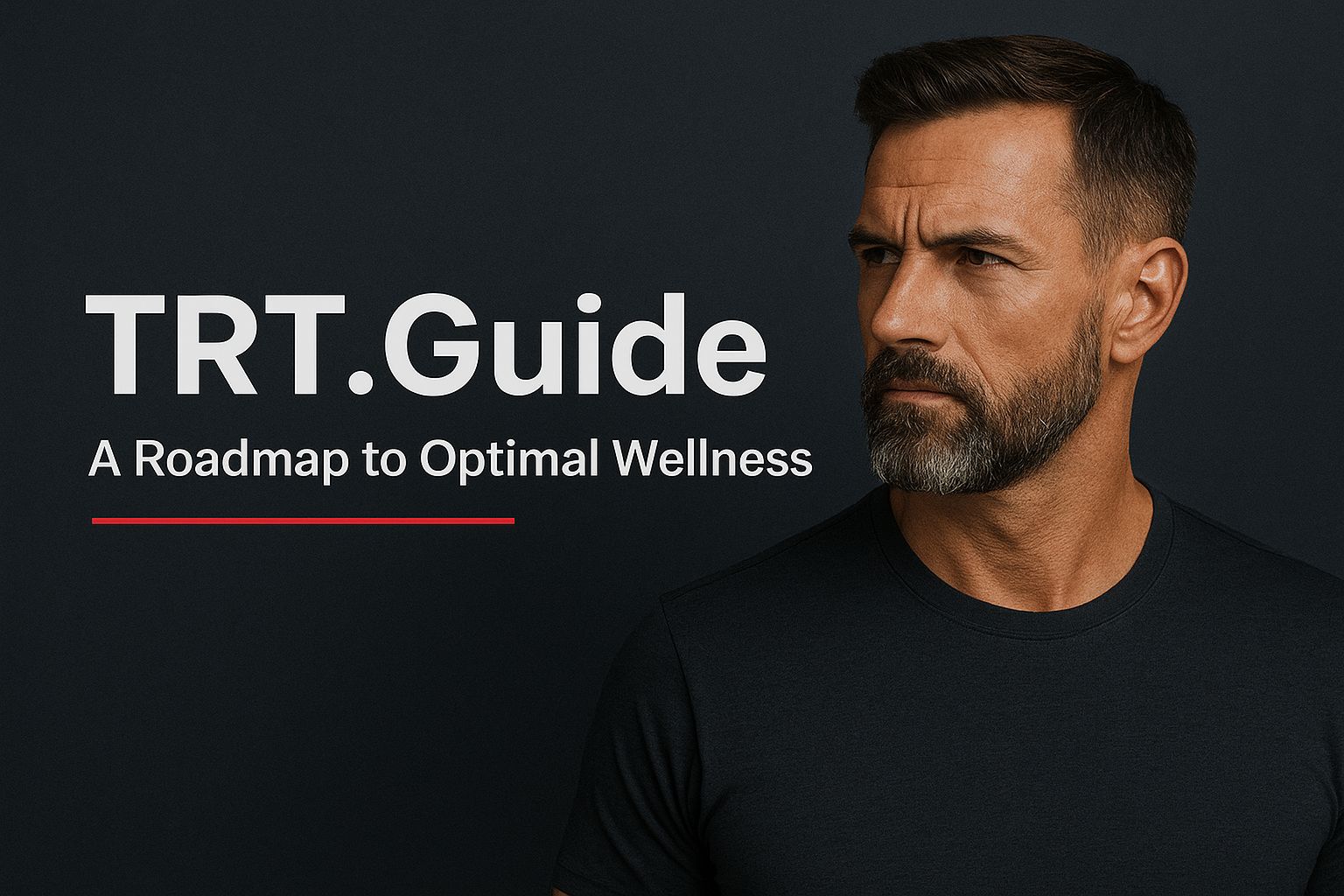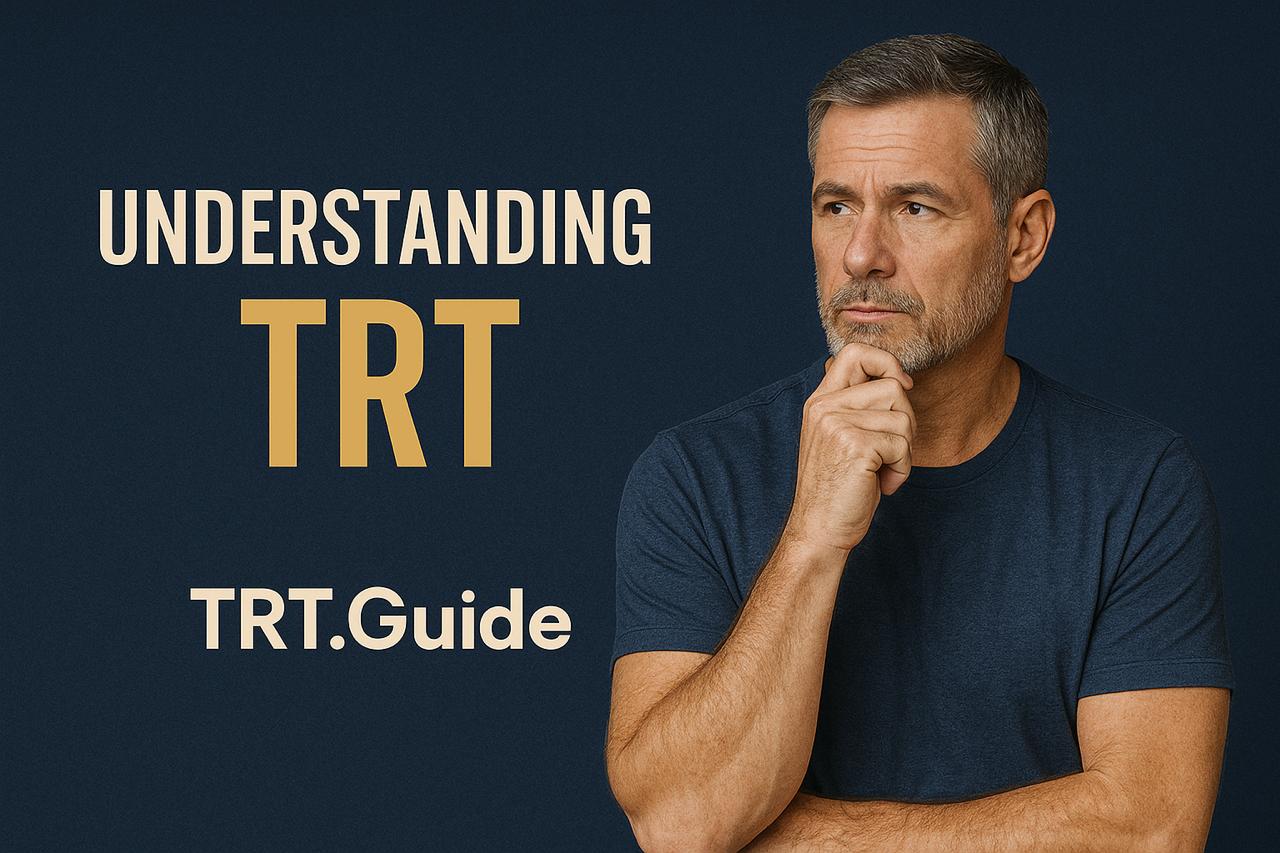Testosterone therapy can be a game-changer for many people, helping to address low testosterone levels and improve overall well-being. But if you’re considering stopping this treatment, you might have questions about what that means for your health. Can you safely get off testosterone therapy? What should you expect during the transition?
Understanding the implications of discontinuing testosterone therapy is crucial. Whether you’re experiencing side effects or simply reevaluating your treatment plan, knowing your options can empower you to make informed decisions. In this article, we’ll explore the key factors to consider when thinking about stopping testosterone therapy and what steps you can take for a smooth transition.
Can You Get Off Testosterone Therapy?
Testosterone therapy replaces or supplements testosterone levels in individuals with low or deficient levels. It aims to alleviate symptoms associated with low testosterone, such as fatigue, depression, and decreased libido.
What Is Testosterone Therapy?
Testosterone therapy involves the administration of testosterone through various methods, including injections, patches, gels, or pellets. Injections typically occur every 1 to 2 weeks, while gels are applied daily. The therapy targets individuals diagnosed with hypogonadism or other conditions leading to low testosterone levels. Regular monitoring of hormone levels ensures optimal dosing and minimizes side effects. Common side effects may include acne, mood swings, and changes in cholesterol levels. Consulting a healthcare provider ensures safe and effective management of the therapy.
Reasons for Undergoing Therapy
Reasons for undergoing testosterone therapy encompass a range of medical and psychological needs. Individuals often seek therapy to address symptoms of low testosterone, such as reduced energy, diminished physical strength, loss of muscle mass, and impaired sexual function. Some may pursue therapy to combat osteoporosis or enhance mood stability. Aging is another significant factor; testosterone levels naturally decline with age, leading many older adults to explore treatment options. Fertility issues may arise in some cases, prompting individuals to consider testosterone therapy to improve overall well-being. Discussing your specific reasons with a healthcare professional allows for a tailored approach.
The Process of Discontinuing Testosterone Therapy
Discontinuing testosterone therapy requires careful consideration and a structured approach. Understanding your reasons and the implications of stopping treatment is essential for a smooth transition.
Assessing the Need to Stop
Assess your reasons for wanting to stop testosterone therapy. Some common reasons include reaching desired testosterone levels, experiencing side effects, or resolving underlying health issues. Evaluate how therapy has impacted your symptoms, such as energy levels, mood, and libido. Discuss your situation with a healthcare professional to determine if stopping is the right decision. Your health history and current condition play crucial roles in this assessment. Regular monitoring and lab tests can help gauge how your body responds to therapy over time. Furthermore, consider the long-term implications of discontinuation, including potential returns of previous symptoms or health issues associated with low testosterone.
Gradual Reduction vs. Sudden Cessation
Gradual reduction of testosterone therapy is generally recommended over sudden cessation. Tapering off allows your body to adjust to lower hormone levels, reducing the risk of withdrawal symptoms or hormonal imbalances. Discuss a tapering schedule with your healthcare professional that suits your specific situation.
In contrast, sudden cessation can lead to negative health effects, including fatigue, depression, and a decrease in libido. It’s crucial to monitor hormone levels during the transition. Regular follow-up appointments can help manage any arising side effects or health concerns. Ultimately, the approach to discontinuing therapy should reflect your health goals and needs, ensuring a more manageable transition.
Potential Effects of Stopping Therapy
Discontinuing testosterone therapy can significantly affect both your body and mind. Understanding potential changes can help in making informed decisions regarding your treatment plan.
Physical Changes
Physical changes can occur after stopping therapy. You might experience fluctuations in energy levels, leading to increased fatigue. Muscle mass may decrease, as testosterone supports muscle development and strength. Bone density might decline, potentially raising the risk of osteoporosis and fractures. Furthermore, you could notice alterations in body composition, with an increase in body fat percentage and a decrease in lean mass. Libidinal changes often occur, manifesting as reduced sexual drive or erectile dysfunction. Your mood may also shift, impacting overall motivation and well-being. These changes often subside gradually but might require medical supervision to address any significant concerns.
Psychological Impacts
Psychological impacts can arise when you stop testosterone therapy. Mood swings and irritability may become more pronounced, as testosterone influences mood regulation. Anxiety and depression commonly resurface or intensify, as many individuals find therapy stabilizes their mental health. Cognitive function might also decline, with some experiencing difficulty concentrating or lower motivation levels. Social interactions can be affected, leading to withdrawal from activities and relationships. It’s crucial to maintain open communication with your healthcare provider during this time to manage these psychological changes effectively and explore alternative support strategies.
Alternatives to Testosterone Therapy
Exploring alternatives to testosterone therapy can help you manage symptoms effectively without relying solely on hormones. Consider the following approaches to support your health and well-being.
Lifestyle Changes
Adopting specific lifestyle changes can significantly impact your hormone levels and overall health. Focus on these key areas:
- Nutrition: Include a balanced diet rich in whole foods, healthy fats, and lean proteins. Foods like avocados, nuts, and fatty fish can promote hormone production.
- Exercise: Engage in regular physical activity, including resistance training and cardiovascular workouts. Aim for at least 150 minutes of moderate exercise weekly to boost testosterone levels naturally.
- Sleep: Prioritize quality sleep by maintaining a consistent sleep schedule and creating a restful environment. Aim for 7-9 hours per night to support hormonal balance.
- Stress Management: Implement stress-reducing techniques like mindfulness, yoga, or deep breathing exercises. Lowering stress helps maintain optimal hormone levels, improving mental and physical health.
- Avoid Toxins: Limit exposure to environmental toxins, such as endocrine disruptors found in plastics. Choose glass or stainless steel containers to store food and drinks safely.
Incorporating these lifestyle changes can enhance your hormone health and overall well-being.
Natural Supplements
Natural supplements can offer support for those looking to manage their testosterone levels without therapy. Consider including the following supplements:
- Vitamin D: Adequate vitamin D levels support testosterone production. Aim for 600-800 IU daily, or get sunlight exposure to maintain healthy levels.
- Zinc: Supplementing with zinc can stimulate testosterone production. Consider 30-90 mg per day, especially if you have a deficiency.
- Fenugreek: This herb may enhance testosterone levels and improve sexual function. Dosages ranging from 500-600 mg daily have shown promise.
- D-aspartic acid: Some studies suggest this amino acid can boost testosterone levels in men. A typical dose is about 2,500 mg daily.
- Ashwagandha: This adaptogenic herb might reduce stress and support testosterone levels. Approximately 300-600 mg daily may yield benefits.
Incorporating these natural supplements, with the guidance of a healthcare professional, can provide supportive benefits and help manage symptoms effectively.
Conclusion
Deciding to discontinue testosterone therapy is a significant step that requires careful thought and planning. By understanding the potential effects and preparing for the transition, you can navigate this process more effectively.
It’s crucial to communicate openly with your healthcare provider about your reasons for stopping and any concerns you might have. They can help you create a tailored plan that aligns with your health goals.
Incorporating lifestyle changes and exploring alternative support strategies can also enhance your well-being during this period. Remember that you’re not alone in this journey, and with the right support, you can achieve a smoother transition away from testosterone therapy.
Frequently Asked Questions
What is testosterone therapy?
Testosterone therapy replaces or supplements low testosterone levels in individuals with deficiencies. It alleviates symptoms like fatigue, depression, and decreased libido, and can be administered via injections, patches, gels, or pellets.
Why might someone consider stopping testosterone therapy?
Individuals may consider stopping testosterone therapy due to side effects, personal preferences, or a desire to explore alternative treatments. It’s essential to assess the reasons thoroughly with a healthcare professional.
What are the potential effects of stopping testosterone therapy?
Discontinuing testosterone therapy may lead to physical changes such as fatigue, decreased muscle mass, and altered libido, alongside psychological effects like mood swings and increased anxiety. Regular monitoring is crucial.
How should I approach stopping testosterone therapy?
It’s best to gradually reduce therapy rather than stopping abruptly. Discuss the decision with your healthcare provider, assess your reasons, and plan for potential withdrawal symptoms and hormonal imbalances.
Are there alternatives to testosterone therapy?
Yes, alternatives include lifestyle changes like a balanced diet, regular exercise, quality sleep, and stress management. Natural supplements such as vitamin D and ashwagandha may also help manage testosterone levels effectively.
How do I ensure a smooth transition off therapy?
Communicate openly with your healthcare provider during the transition. Regular check-ups will help monitor hormone levels, symptoms, and overall health, ensuring a tailored approach to your individual needs.






